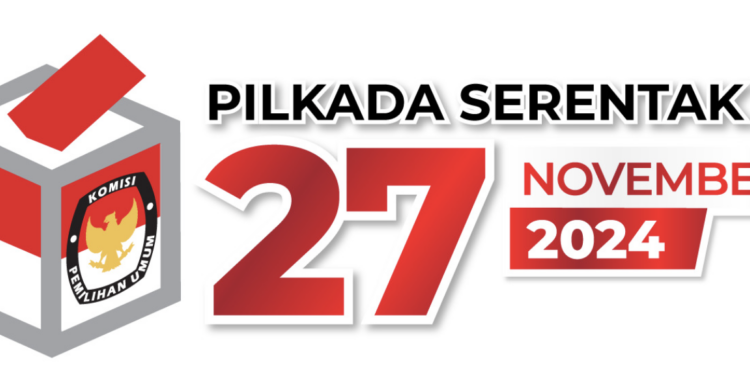Encouraging Public Awareness to Fight Money Politics in the 2024 Regional Elections
By: Gema Iva Kirana)*
The 2024 Pilkada, which will be held simultaneously in various regions in Indonesia, is faced with major challenges related to the practice of money politics. Although there have been various prevention and enforcement efforts, the reality is that this practice still lurks in our democracy.
Therefore, it is important for the public to be more aware and active in fighting money politics so that Indonesian democracy remains clean and free from manipulation. The courage to reject money politics must come from all of us as wise voters.
Director of Islamic Religious Affairs of the Ministry of Religious Affairs (Kemenag) Adib, said that money politics is clearly contrary to religious values. In Islamic teachings, money politics includes bribery which is strictly prohibited. In fact, in the hadith it is stated that Allah curses those who give bribes and those who receive bribes. This shows how serious the negative influence of the practice of money politics is.
Adib reminded the public to choose leaders honestly without justifying any means. Leaders who are chosen through money politics will ultimately damage the integrity of the nation and create leaders who are not trustworthy. Therefore, Adib emphasized the importance of maintaining the Pilkada so that it takes place free from money politics. Because, something good must be obtained in a good way.
Money politics in the Pilkada is not only about giving cash, but is now also starting to shift to digital methods. The Head of Bawaslu Bali, I Putu Agus Tirta Suguna, in a discussion expressed his concern regarding the potential shift in money politics that no longer only uses cash, but also involves a digital system.
The use of digital money is of course more difficult to monitor because it is often done privately. Without clear reports, supervision is not optimal. This is where the active role of the community is needed.
Agus emphasized the importance of public participation in reporting if they find indications of money politics, including through digital methods. This is in line with the principle of supervision carried out by Bawaslu, which requires initial information either from public reports or findings that will be followed up.
In addition, money politics also has the potential to occur during critical times before voting, such as the campaign period and the quiet period. Bawaslu Bali has also supervised the Pilkada in various regions, including the election of governors, regents, and mayors.
Agus emphasized that supervision must be carried out with great care, especially during the three-day quiet period, namely November 24-26, 2024. During this period, all forms of money politics, whether involving cash or digital, must be strictly monitored so as not to damage the integrity of democracy.
Not only in Bali, other regions also show the same commitment in preventing money politics. In Sigi Regency, Central Sulawesi, for example, the local government has implemented a curfew policy to minimize the occurrence of money politics.
Sigi Regent, Mohamad Irwan Lapatta, explained that this policy was taken after a coordination meeting with the regional leadership communication forum (Forkopimda). The goal is to maintain the integrity of the Pilkada in Sigi Regency so that it can take place honestly, fairly, and transparently.
For 14 days until the end of the 2024 Pilkada, a curfew will be imposed in every village, starting at 22.00 to 06.00 WITA. This access restriction is intended to prevent the movement of people suspected of money politics or distributing basic necessities. Each village is also instructed to enforce portals or restrictions on entry and exit at night, especially approaching voting day.
Irwan emphasized the importance of coordination with local security forces, such as Bhabinkamtibmas and Babinsa, to carry out preventive and repressive supervision if any indications of money politics practices are found.
Irwan hopes that the public can support this step by participating in monitoring and reporting any suspicious actions. These preventive measures are expected to maintain the smooth running of the Pilkada and ensure that the results of the Pilkada reflect the true wishes of the people. There is no place for fraudulent practices in the Pilkada which should be an event to elect a trustworthy leader.
However, efforts to combat money politics do not only depend on the government and election supervisory institutions. The public must participate in maintaining the integrity of the Pilkada by rejecting all forms of money politics.
Voters who are aware of the importance of clean democracy will be more careful in choosing leaders. They will choose leaders based on clear vision and mission, not based on money or other facilities.
It is important to remember that money politics not only harms the individuals who receive or give money, but also damages our democratic system as a whole. Money politics creates injustice and eliminates opportunities for prospective leaders who have the capacity and integrity, but do not have the resources to bribe voters.
Therefore, all parties, be it the community, government, or election organizers, must work together to ensure that the 2024 Pilkada is free from money politics. We, as the people of Indonesia, must be the guardians of democracy. Our courage to reject money politics, whether in the form of cash or digital, will determine the future of the nation.
